One of the most paralyzing fears for many artists is a fear of failure. However, we often fall into the trap of fearing failure and dreaming of success without really defining either term. In my experience, too few artists really live with the question of “What does ‘success’ mean to me?” Instead, we too often blindly seek this nebulous goal of “success” and every step not firmly in that direction can feel like failure.
If we think of failure this way (and I would argue that many artists do), the very nature of our work makes failure — in fact, repeated failure — intrinsic to the work we do. Good art comes from taking risks, and risk taking inevitably leads to at least periodic failures. More concretely, in most fields, a job search is a very rare thing. In the arts, however, we are essentially always job seeking, with interviews, auditions, submissions to competitions and residencies, grant writing, etc. At how many of these must we fail for every one at which we succeed?
In the arts, in order to succeed, we must fail and fail again. To that end, I decided to crunch the numbers on my own history of failure. I fear (pun intended) that artists too often keep this information buried for fear of exposing their own failures, but failure is part of what binds us together as a community. It is part of our shared experience, so let’s take down the veil and see what “failure” and “success” actually look like.
Let’s start with my education. Here’s how I look on paper:
Aaron Alon holds a DMA from Rice University’s Shepherd School of Music, an MM from the Cleveland Institute of Music, and a BA with honors from the University of Chicago.
I had the great honor of attending three of the finest institutions in the US and did very well at them. That looks pretty impressive, but here’s what this doesn’t show:
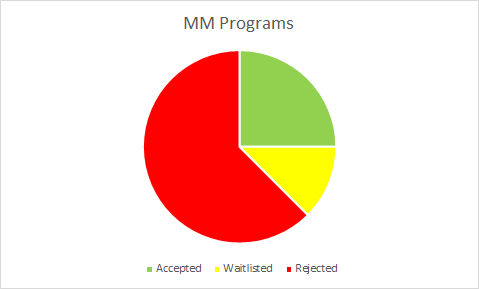
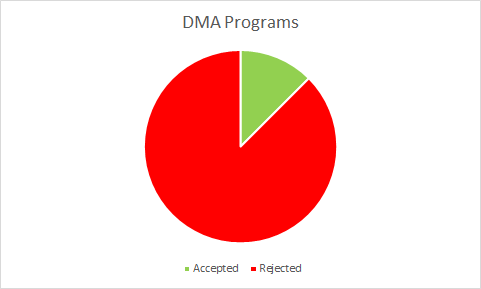
You might wonder why I didn’t include my BA. The reason is that I can’t remember how many undergraduate institutions I applied to and which I was admitted to or not. (Isn’t it nice that after a certain number of years, this seemingly life-defining information fades to forgotten trivia?)
How about my work as a composer? Here’s how I look on paper:
Aaron Alon’s music has been performed in concerts throughout the US and around the world, released on six CDs, and awarded numerous national and international composition honors, including those from ASCAP; the National Association of Composers; the National Federation of Music Clubs; the Society of Composers, Inc.; Meet the Composer; the Lotte Lehmann Foundation; the Renée B. Fisher Composer Awards; and Mu Phi Epsilon.
Here’s what this doesn’t show:
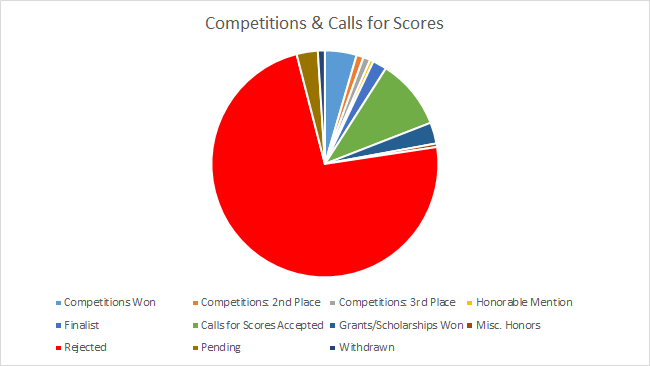
I found 200 competitions, calls for scores, and grant/scholarship applications that I entered. With even the most generous reading on “winning” these (including honorable mention, finalist status, and getting my pieces selected for performance, publication, or CD release), I’ve lost 4-5 of these for every one that I’ve won. (ASCAPLUS Awards excluded from these statistics.)
What about my work as a teacher? Here, again, is how I look on paper:
Aaron Alon is highly active as a teacher. He is an Associate Professor of Music and Lead Faculty for the Department of Music, Drama, and Dance at Lone Star College-CyFair, where he was named a 2014 Distinguished Faculty member and a 2015-2016 Faculty Excellence Award winner. He is also the Director of the Composition program at AFA. He has taught for the Women’s Institute of Houston, Rice University’s Shepherd School of Music and their School of Continuing Studies, the University of Texas “Road Scholar” program, and Alvin Community College.
What this doesn’t show is all of the rejections I received before securing a full-time job at Lone Star College:

I have a number of almost criminally talented friends and colleagues who have not been able to find full-time teaching work in academia. As this pie graph shows, I’ve been there!
All of this is to say that failure is just a part of the road to success in the arts. It never stops feeling bad, but you can learn to accept it as a mundane reality of life as a creative person. It’s one of the things you share with every creative artist and, in fact, every successful person throughout history.
I also advise that you watch your language. “Failure” is a profound indictment and is seldom deserved. In my own files on competitions I’ve entered, I don’t have a file for “wins” and a file for “failures” or “losses.” I called them “Wins” and “No-wins.” It seems silly, but I’ll do what I can to tame the sting. Similarly, I know a number of artists who have held friendly competitions with their friends to see who can accrue more rejection letters (or the funniest rejection letters) in the span of a year. I think this is a great idea. It encourages you to enter as many as possible (which raises your chances for winning a few) and helps you find the silver lining.
Rejection sucks, but if you’re doing good work, try not to let it define you. A successful artist is not one who always succeeds or even usually succeeds. A successful artist is one who keeps going.
“Success consists of getting up just one more time than you fall.”
—Oliver Goldsmith
Or if you prefer to hear it from a musician:
“Success is falling nine times and getting up ten.”
—Jon Bon Jovi
Acknowledgements
This post was partly inspired by Johannes Haushofer’s CV of Failures, which in turn was inspired by this Nature article.
What Do You Think?
How do you define “success” or “failure?” What failures have you met with on the road to success? Comment to share your thoughts and experiences.
©2016 Aaron Alon. All Rights Reserved.








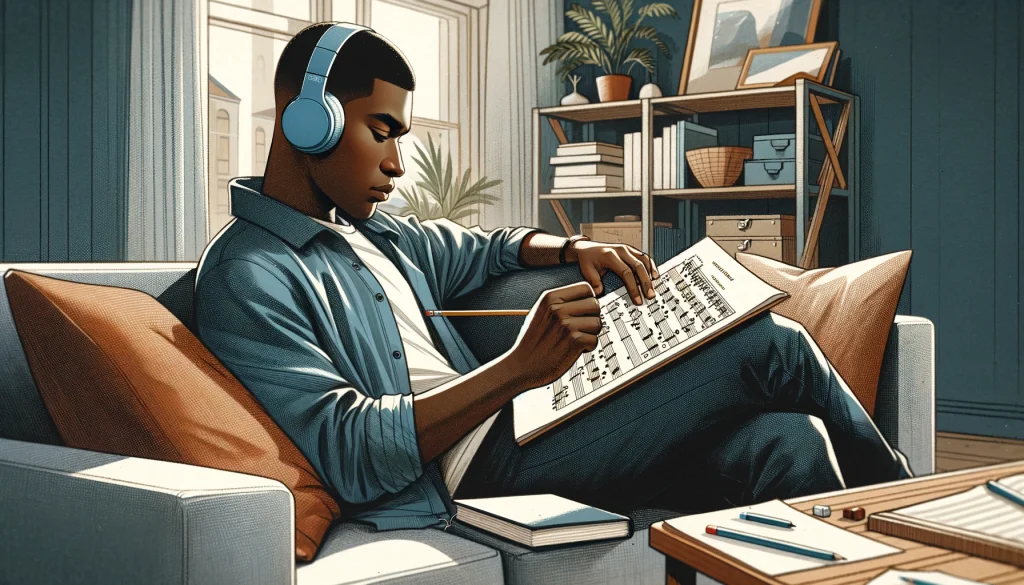

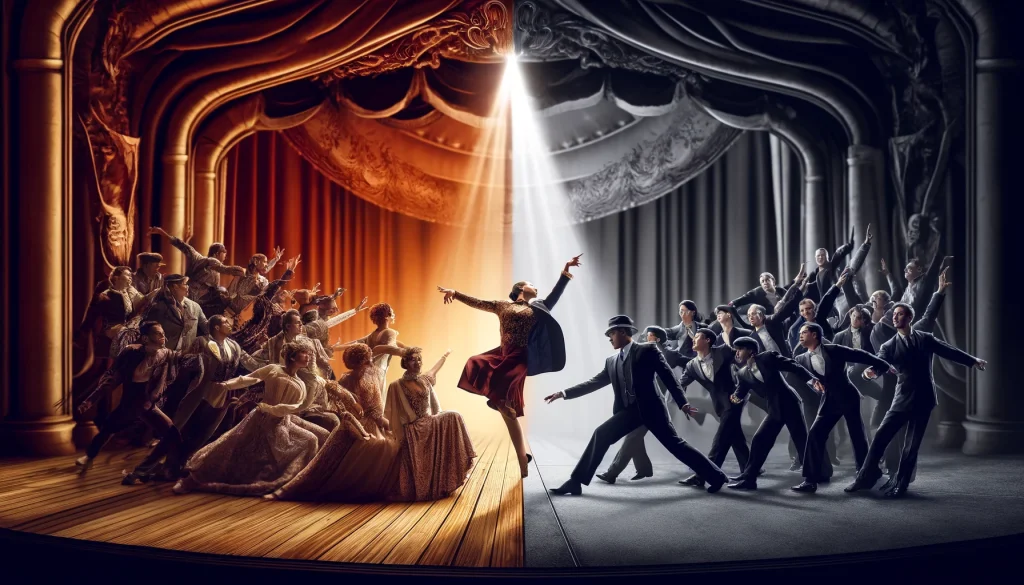
Great post, Prof Alon! It’s great advice, and I love that you share you own personal “failures” – but then again, it’s not really failing at all, because look were you are today. Keep it up. Love the new website, too!